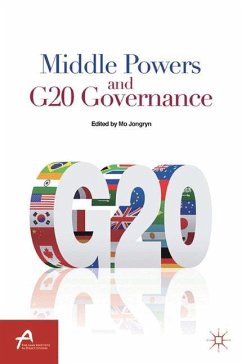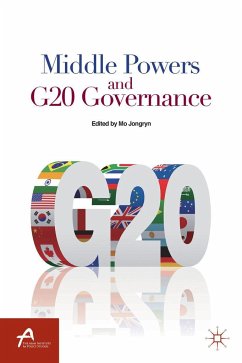
The Rise of Authoritarian Middle-Powers and What It Means for World Politics
Versandkostenfrei!
Erscheint vorauss. 31. Januar 2026
66,99 €
inkl. MwSt.
Weitere Ausgaben:

PAYBACK Punkte
33 °P sammeln!
In recent years a group of influential authoritarian states has emerged that fall between the ranks of great powers and small states. These authoritarian middle-powers - such as Turkey and the United Arab Emirates - exert considerable influence, particularly in their region. Yet this development has been overlooked in favor of a focus on superpowers, especially China and Russia. We therefore lack a framework for understanding their behavior and impact. This Element offers the first comprehensive analysis of how non-democratic middle-powers engage abroad. Drawing on case studies of states and r...
In recent years a group of influential authoritarian states has emerged that fall between the ranks of great powers and small states. These authoritarian middle-powers - such as Turkey and the United Arab Emirates - exert considerable influence, particularly in their region. Yet this development has been overlooked in favor of a focus on superpowers, especially China and Russia. We therefore lack a framework for understanding their behavior and impact. This Element offers the first comprehensive analysis of how non-democratic middle-powers engage abroad. Drawing on case studies of states and regions, it shows how the combination of authoritarian politics and mid-level status leads to distinctive foreign policies. In particular, these approaches erode global democratic norms and institutions through a combination of hard power tempered by hedging and legitimation strategies. In this way, authoritarian middle-powers are helping to unravel the liberal rules-based order. This title is available as Open Access on Cambridge Core.












